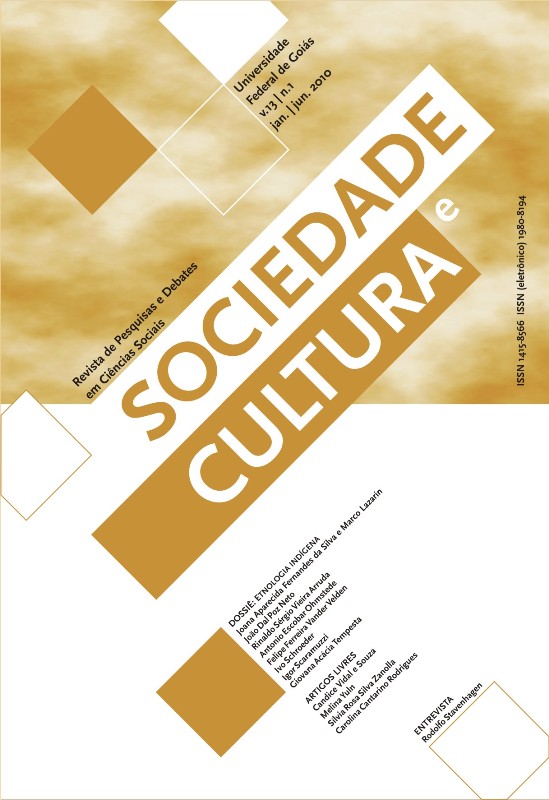The Xerente: structure, history and politics
DOI:
https://doi.org/10.5216/sec.v13i1.11174Keywords:
Xerente Indians, history and social memory, Theresa Chistina Village, dualistic societies, social structure and indigenous politics.Abstract
The field of the politics among Xerente dialogues with their social structure and here it is approached starting from their space distribution in dozens of relatively autonomous settlements. The foundation of settlements replicates and strengthens a social structure that operates by opposition between sides or groups. A society so fragmented, however, is capable of concerted action in the defense of collective interests. Unless in these fleeting events, however, the interests of the groups are heeded and the political representation is suspicious. The social memory, replete by the histories of the bad choice, when they had throw away the goods of the whites, one see mobilized for an approach of the public policy and in the way of doing politics of the whites, where again they appear in groups, because this is the own form of being Akwe Ktabi.
Downloads
Downloads
Published
How to Cite
Issue
Section
License
Authors who publish in this journal agree to the following terms:
- Authors retain the copyright and grant the journal the right of first publication, the work being simultaneously licensed under the Creative Commons Attribution License, which allows the sharing of the work with acknowledgment of authorship and of the initial publication in this journal;
- Authors are authorized to enter into additional contracts separately, for non-exclusive distribution of the version of the work published in this journal (eg, publishing in an institutional repository or as a book chapter), with acknowledgment of authorship and of the initial publication in this journal;
- Authors are allowed and encouraged to post and distribute their work online (eg, in institutional repositories or on their personal page) at any point before or during the editorial process, as this can bring productive change as well as increases the impact and the citation of the published work (see O Efeito do Acesso Livre).



